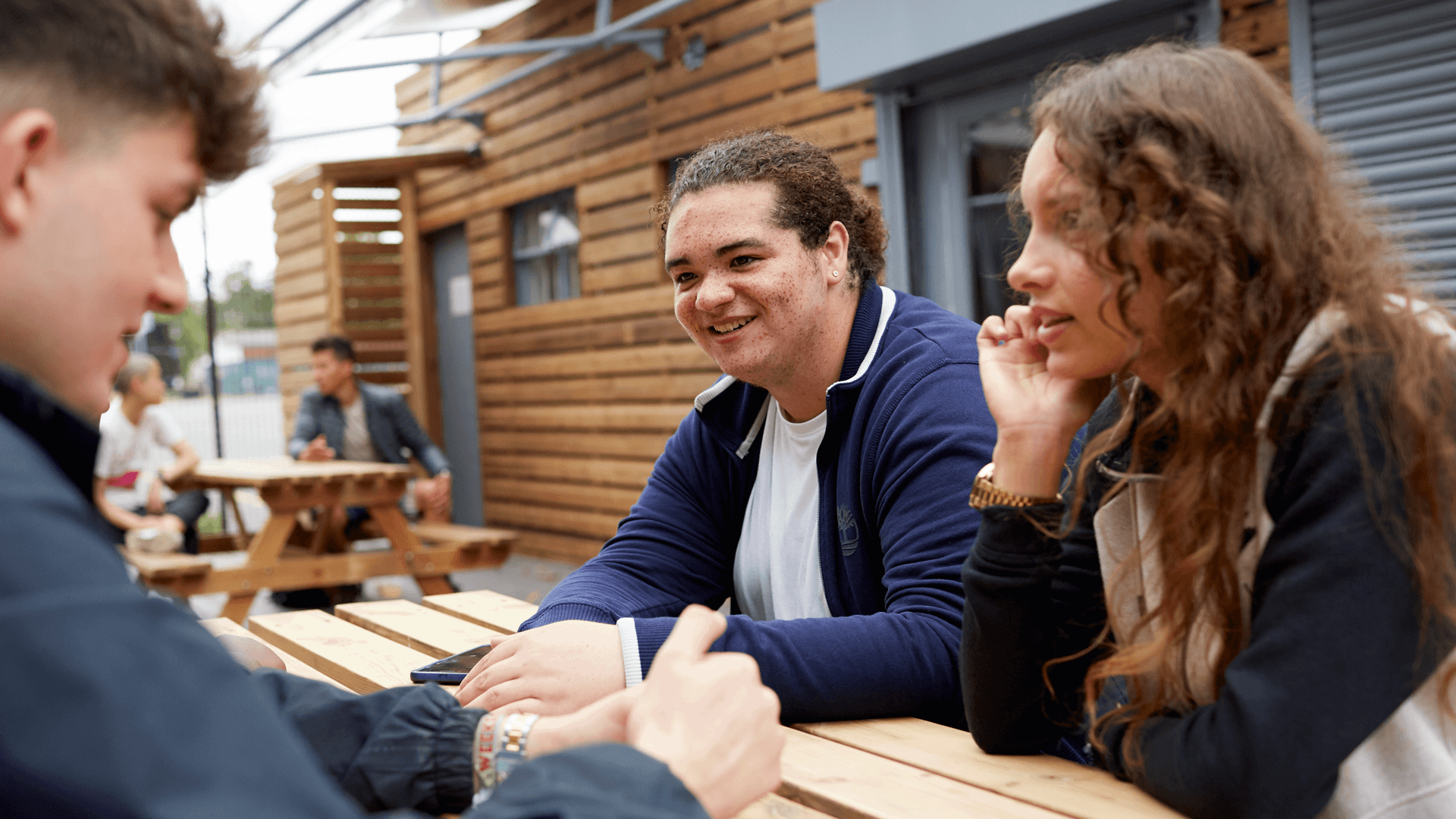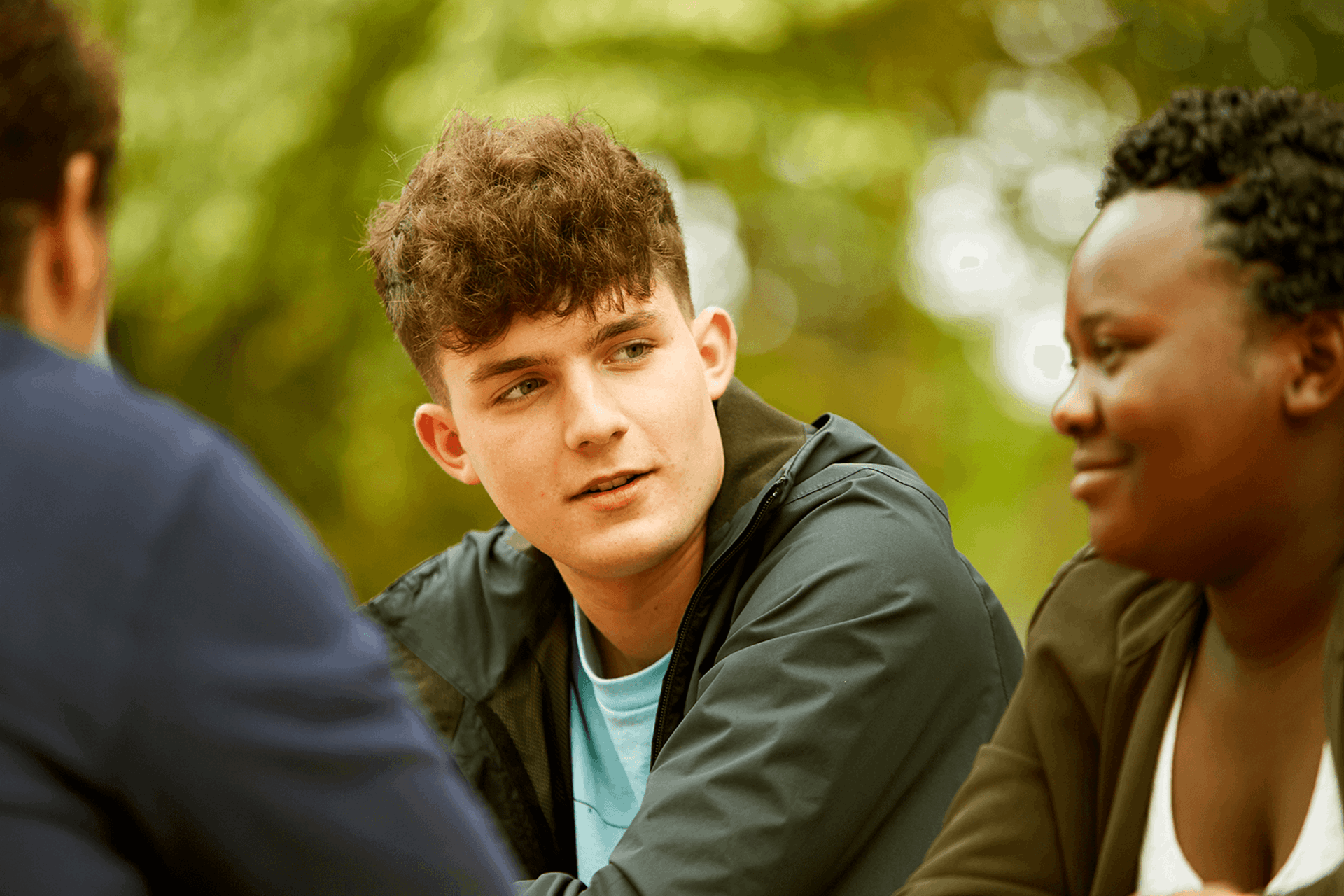Topics mentioned: hallucinations, hearing voices, anxiety, sleep problems
About: Raylen shares their experiences of hallucinating, hearing voices, and the coping strategies that help them look after their mental health.
I’ve experienced hallucinations throughout my childhood and teenage years. I can't remember much from my childhood, but I've been told what I said, like telling my dad there was a "bad man" in our house or how I cut holes into my mum's bedsheets because my "imaginary friends" told me to.
My hallucinations are usually visual, such as seeing people and figures, but I’ve also experienced hearing voices. Sometimes my hallucinations are "silly" ones, such as seeing bugs that aren't there, but they go away quickly. Those ones are easier to brush off as it's only for a few seconds. Even now, I still have to look a few times to check if I’m actually seeing a bug, so I don't freak myself out if nothing is actually there.
I seem to hallucinate a lot more when I'm stressed or tired, so it’s important to find a way to relax and be well rested. There are many causes for hallucinations, like stress, tiredness, insomnia, depression, grief, even anxiety. As I've gotten older, I can differentiate between reality and what only I'm experiencing. An example would be if I saw a man stood in the doorway – I know he's fake because he disappears when I look at him for longer. A man can’t magically appear in my house when all doors are locked, and I didn't hear anybody break in.
As I write this and admit that I have hallucinated before, it feels uncomfortable, but I know the stigma must be broken.
A few months ago, I was hallucinating very badly. I was seeing people and hearing things. I could hear a woman screaming so loud it was layered and it sounded as if she was being badly hurt. At first it really freaked me out because I couldn't tell if it was actually happening or not, but I soon realised the sound was too loud and close to be real, and I was home alone. It also stopped after a few minutes, but that doesn't make it any less scary.
As I write this and admit that I have hallucinated before, it feels uncomfortable, but I know the stigma must be broken. People with hallucinations are not "crazy" or "schizophrenic". Of course, hallucinations play a part of schizophrenia, but not everyone who experiences hallucinations has schizophrenia.
If you experience hallucinations and others don't know, I truly hope this helps you feel less alone. Here are some things that have helped me deal with hearing voices and hallucinating. It's all trial and error, and some things will help you more than others.
Coping strategies for hallucinating and hearing voices
-
Take a picture or recording
Use your phone camera to record or take a picture and see if it shows up on the recording/picture.
-
De-stress/find ways to cope with stress
Be sure to get enough rest. This is so important for your overall mental health, even if you don't experience hallucinations.
-
Speak with a professional
Such as a counsellor, teacher, psychiatrist, or your doctor/GP. You are not alone in this and there is support available.
-
Talk with others who also hallucinate
It can be so helpful to speak with others who are going through similar experiences. Voice Collective have peer support groups to help young people find others going through similar experiences.
-
Find a distraction that engages your senses
For me, wearing headphones helps a lot because it gets my mind off what I'm seeing/hearing. You could hold something cold or textured to ground you or try counting objects/things you can see.
-
If you have any pets, play with them
It helps take your focus off what you're seeing, hearing, feeling or smelling.
Remember, you will NOT get sectioned for speaking up about hallucinations. I always believed telling somebody would end up with me in hospital because they'd think I was "crazy" but that isn't what happened at all. I've spoken with my psychiatrist about hallucinations from the age of two and I'm now 16 – I was not called “crazy” or “insane”. I was listened to.
Like other mental health struggles, hallucinations are not something we choose. Hallucinations are something many people experience and struggle with – this doesn’t automatically make you "mental". Unfortunately, some people misunderstand what it means to hear voices or have hallucinations.
But just like how depression affects everyone differently – with some people able to get up and leave the house, while others are unable to get out of bed – struggling with your mental health doesn’t make you “crazy”. We all face mental health challenges in our own way.
My experience with hallucinations has been a rocky one, because not many people understand it. I hope my story can help raise awareness so others can speak up and realise they are not alone in this.
I've spoken with my psychiatrist about hallucinations from the age of two and I'm now 16 – I was not called “crazy” or “insane”. I was listened to.
More information and advice
We have tips and advice to help you find the support you need. Take a look at our guides.
Where to get help
However you're feeling, there are people who can help you if you are struggling. Here are some services that can support you.
-
Voice Collective
A UK–wide project supporting young people who hear voices, see visions, or have other sensory experiences or beliefs.
Online peer support groups for young people aged 11-15, 16-25, and students.
One-to-one email support and one-to-one Zoom support.
-
Childline
If you’re under 19 you can confidentially call, chat online or email about any problem big or small.
Sign up for a free Childline locker (real name or email address not needed) to use their free 1-2-1 counsellor chat and email support service.
Can provide a BSL interpreter if you are deaf or hearing-impaired.
Hosts online message boards where you can share your experiences, have fun and get support from other young people in similar situations.
- Opening times:
- 24/7
-
Samaritans
Whatever you're going through, you can contact the Samaritans for support. N.B. This is a listening service and does not offer advice or intervention.
- Opening times:
- 24/7






